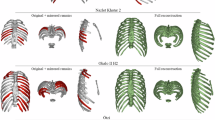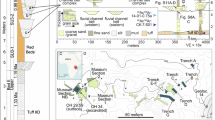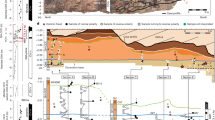Abstract
IN their recent article in Nature1, on “A New Species of the genus Homo from Olduvai Gorge”, L. S. B. Leakey, P. V. Tobias and J. R. Napier refer to the specimens (from Swartkrans, Transvaal) originally described by Broom and Robinson (1949) as Telanthropus capensis but later referred by Robinson (1961) to Homo erectus Dubois sp. (1894). Leakey et al. give as their opinion that T. capensis “may well prove, on closer comparative investigation, to belong to Homo habilis”. However, if the Olduvai hominid proved to be conspecific with the Swartkrans form, the name capensis would have priority over habilis, not vice versa. Similarly, should the new hominid be conspecific with the Kanam mandible (which we think unlikely), the specific name kanamensis Leakey, 1935, would have priority.
This is a preview of subscription content, access via your institution
Access options
Subscribe to this journal
Receive 51 print issues and online access
$199.00 per year
only $3.90 per issue
Buy this article
- Purchase on SpringerLink
- Instant access to the full article PDF.
USD 39.95
Prices may be subject to local taxes which are calculated during checkout
Similar content being viewed by others
References
Nature, 202, 7 (1964).
Author information
Authors and Affiliations
Rights and permissions
About this article
Cite this article
OAKLEY, K., CAMPBELL, B. Newly Described Olduvai Hominid. Nature 202, 732 (1964). https://doi.org/10.1038/202732b0
Issue date:
DOI: https://doi.org/10.1038/202732b0
This article is cited by
-
Homo ‘habilis’ and the Australopithecines
Nature (1965)
-
Science and Human Evolution
Nature (1964)



